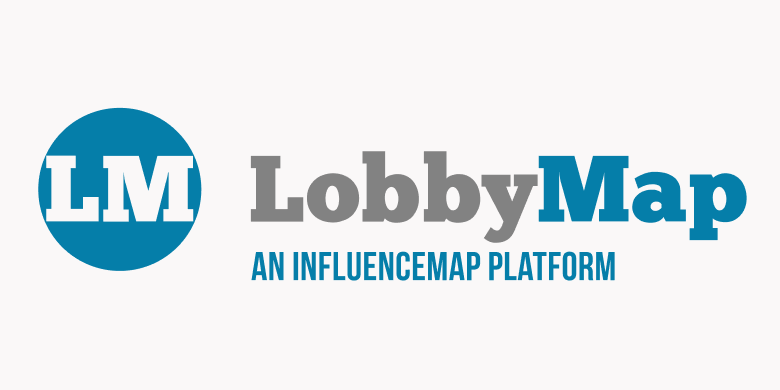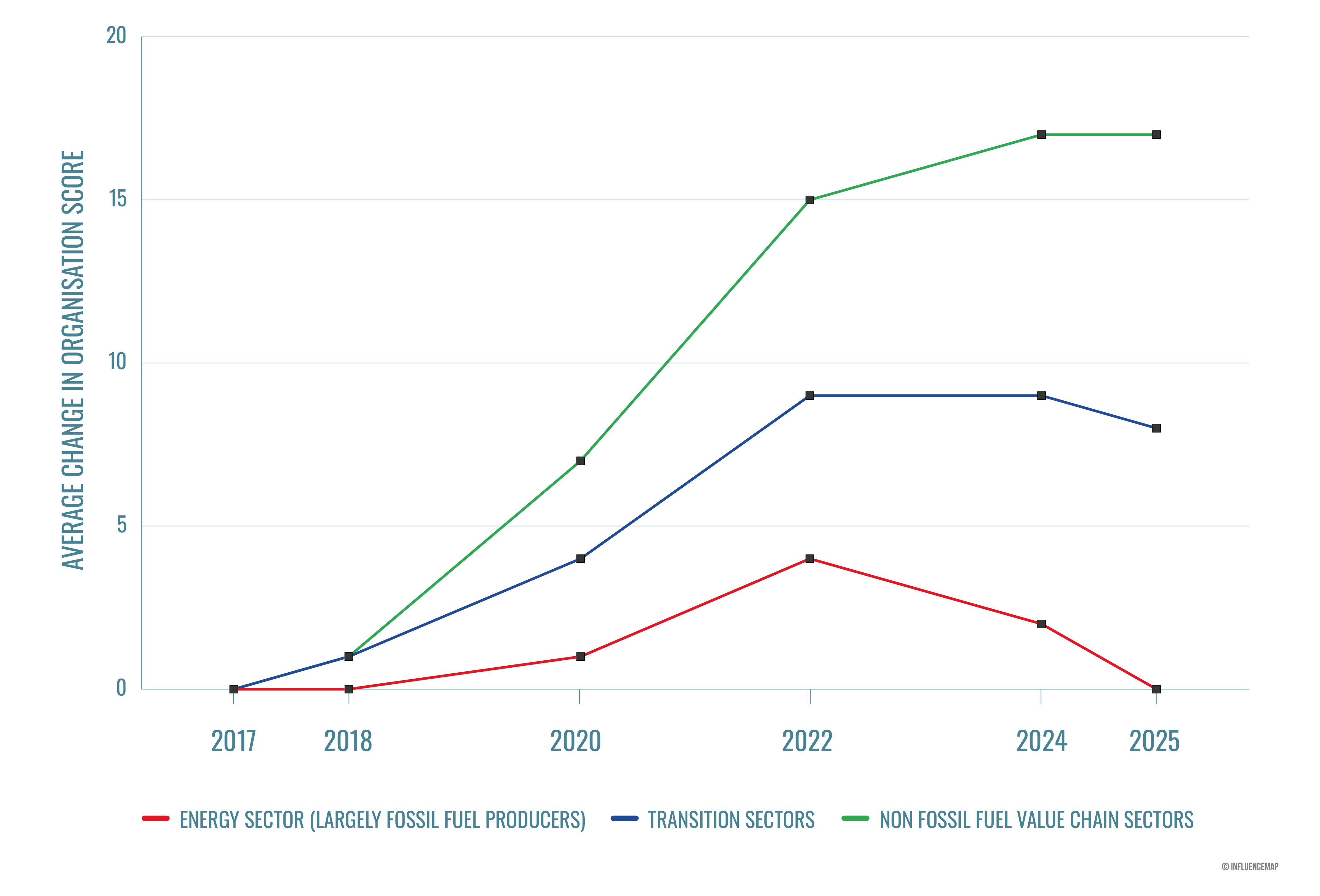Corporate lobbying is one of the most powerful forces shaping our world. It can accelerate climate action—or block it entirely. For a resilient, affordable, and secure future, it is vital that companies lobby responsibly.
To Lobby Responsibly on climate change—also called Responsible Policy Engagement—means advocating for public policies that support your company’s plans to reduce greenhouse gas emissions in line with global climate goals.
Right now, however, corporate actors with ties to the fossil fuel sector are using their influence to delay and dilute climate policies for short-term business advantage. This delay comes at the cost of the majority, as climate inaction pushes food and energy prices up, and people miss out on the benefits of green innovation and clean jobs.

InfluenceMap's LobbyMap platform is the world’s leading database for tracking and analyzing how companies and their industry associations are influencing the debate on climate change, covering over 1,000 companies and 330 industry associations across all major economies and sectors. We work closely with companies, investors, civil society and policymakers to drive science-aligned climate policy. Our open access resources also include guidance on science-based policy positions, as well as explainers and guidance on best-practice climate policy engagement disclosures. If you are interested in learning more, contact us here.
Undue influence from fossil fuel interests is warping our politics and our economies—preventing policies that would benefit the majority in favor of a few powerful vested interests. Delay means more people will suffer from the consequences of escalating climate change, including volatile energy prices and rising food costs, rather than enjoying the benefits that will come from innovation and clean jobs.
Since 2020, a growing number of companies from sectors outside of the fossil fuel value chain, such as renewables, consumer staples, and healthcare—as well as transitional sectors, like transport, heavy industry, and utilities—are using their influence to advocate for science-aligned climate policies, recognizing that climate policies bring investment certainty, risk reduction, and new economic opportunities for forward-looking businesses.
Between 2020 and 2024, the proportion of engaged companies tracked by InfluenceMap that aligned their advocacy with science-based guidance on reaching net zero tripled from 5% to 15%, demonstrating an important shift towards increased alignment with science-based pathways in corporate advocacy.
This briefing presents InfluenceMap’s initial analysis of how companies in Brazil are engaging with climate policy.
An InfluenceMap joint report with Transparency International, looking at how companies and industry associations might be planning to lobby at COP30.
This briefing analyzes how industry debate over climate and competitiveness is shaping the future of European climate policy.
Rising levels of polarization and disinformation around climate change, coupled with aggressive lobbying efforts from the fossil fuel sector and laggard companies in sectors impacted by the energy transition ('Transitional Sectors' below)—for example in the automative sector—have led to weakening climate efforts in key regions.

There are numerous guides and resources that provide useful overviews to this topic including:
Companies can start to Lobby Responsibly by taking the following steps:
Useful Resources: Transition Plan Taskforce Resources (IFRS); Climate Transition Action Plans (We Mean Business Coalition); A Practice Guide on Transition Plan Dependencies (World Business Council for Sustainable Development)
Useful Resources: Seven Barriers to U.S. Business Leadership on Climate Policy and How to Break Them Down (World Resources Institute)
Useful Resources: Science-Based Benchmarks (InfluenceMap); Best Practice Guidance on Disclosing Corporate Policy Engagement (InfluenceMap); Guide for Responsible Corporate Engagement in Climate Policy (UN Global Compact);
Useful Resources: Industry Association Rankings and Profiles (InfluenceMap); Mobilising Trade Associations as a Force for Good (Volans and World Business Council for Sustainable Development)